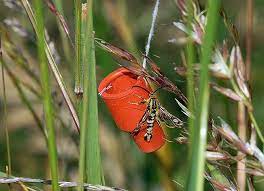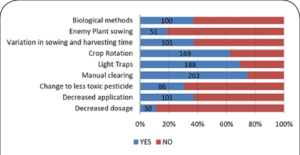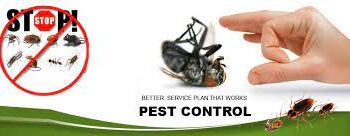“Responsible Pest Management: Weighing the Pros and Cons of Non-Lethal Pest Control Techniques for Sustainable Solutions”
Introduction
As awareness of animal welfare and environmental concerns continues to grow, pest control methods that avoid lethal means have become more popular. In particular, trapping and relocation are often touted as more humane and ethical alternatives to traditional pest control methods. However, while non-lethal methods may seem like an ideal solution, there are a number of ethical and practical considerations that need to be taken into account.

Ethical Considerations
One of the primary arguments in favour of non-lethal pest control is that it is more ethical than traditional methods, which often involve the use of poisons or traps that cause death. Trapping and relocation methods, on the other hand, allow for the safe capture and relocation of pests without causing harm. However, there are a number of ethical considerations that need to be taken into account.
For example, it is important to ensure that the animals being trapped and relocated are not subjected to unnecessary stress or harm. In addition, there may be ethical considerations around the impact that the introduction of new animals into a new environment may have on the local ecosystem. There is also the issue of what to do with the pests once they have been captured, as releasing them into a new area could simply be passing the problem on to someone else.
Practical Considerations
Aside from ethical concerns, there are also a number of practical considerations that need to be taken into account when using non-lethal pest control methods. For example, trapping and relocation can be a time-consuming and labor-intensive process, which may not be practical for large infestations or in areas where access is limited.

There is also the issue of effectiveness. While trapping and relocation may seem like a humane solution, it may not always be the most effective. For example, pests that have become accustomed to living in a particular environment may simply return to the area once they have been relocated. In addition, there is the risk that pests may simply move to another part of the property, rather than leaving altogether.
Balancing Ethics and Effectiveness
Ultimately, the decision to use non-lethal pest control methods will depend on a number of factors, including the type and severity of the infestation, as well as ethical considerations. It is important to consider the potential impact on both the animals being trapped and relocated, as well as the local ecosystem. In addition, it is important to weigh the practical considerations, such as the time and resources required, against the effectiveness of the method.
Non-lethal pest control methods, such as trapping and relocation, are becoming increasingly popular as more people become aware of animal welfare and environmental concerns. However, it is important to carefully consider the ethical and practical considerations involved in these methods. By balancing these factors, it may be possible to find a humane and effective solution to pest control that meets the needs of both people and animals.
Alternative Non-Lethal Pest Control Methods
While trapping and relocation are popular non-lethal pest control methods, there are also other alternatives that can be used to manage pest infestations. These include exclusion methods, repellents, and habitat modification.
Exclusion methods involve physically blocking pests from entering a particular area. This may involve sealing gaps and cracks in buildings, installing mesh screens over vents and windows, or using fencing to keep pests out. Repellents, on the other hand, use natural or chemical substances to deter pests from entering an area. This can include using essential oils or vinegar sprays to deter insects, or using ultrasonic devices to repel rodents.

Habitat modification involves changing the environment in which pests live in order to make it less hospitable. This may include removing sources of food and water, or altering the landscape to make it less attractive to pests. For example, planting certain types of plants can help to repel insects, while removing piles of wood and debris can help to discourage rodents.
The effectiveness of these methods will depend on a number of factors, including the type and severity of the infestation, as well as the specific species of pest involved. In addition, it is important to consider the potential impact on other wildlife in the area, as some methods may also deter beneficial insects and animals.
Understanding the Behaviour of Pests In order to effectively manage pest infestations, it is important to have a good understanding of the behaviour of the pests involved. This can help to identify the most effective control methods, as well as to predict the likelihood of future infestations.
For example, many types of rodents have a strong instinct to return to their home range, which can make trapping and relocation less effective. In addition, some species of insects may be attracted to certain types of food or plants, making it important to target these areas in order to manage the infestation.
By understanding the behaviour of pests, it may be possible to develop more targeted and effective pest control methods that are tailored to the specific needs of the situation.
The Importance of Integrated Pest Management Ultimately, the most effective pest control strategies are those that take an integrated approach. This involves combining a range of different methods in order to achieve the best possible outcome.

Integrated Pest Management (IPM) is a holistic approach to pest control that involves a combination of non-lethal and lethal methods, as well as preventative measures. This may include trapping and relocation, exclusion methods, habitat modification, and the use of pesticides where necessary.
The key to successful IPM is to take a proactive approach, rather than simply reacting to infestations as they occur. This may involve regular inspections and monitoring, as well as ongoing maintenance to prevent potential entry points for pests.
The Benefits of Non-Lethal Pest Control
Despite the ethical and practical considerations involved, there are a number of benefits to using non-lethal pest control methods.
One of the main benefits is that it can help to reduce the use of harmful chemicals and poisons, which can have negative impacts on both the environment and human health. Non-lethal methods are also often more sustainable and can help to maintain ecological balance by avoiding the wholesale removal of pests from the environment.
In addition, non-lethal methods can be more effective in the long term, as they address the root causes of the infestation rather than simply treating the symptoms. By modifying the environment to make it less hospitable to pests, it may be possible to prevent future infestations from occurring.
Conclusion
Non-lethal pest control methods, such as trapping and relocation, are becoming increasingly popular as people become more aware of animal welfare and environmental concerns. However, it is important to carefully consider the ethical and practical considerations involved in these methods, as well as their effectiveness.















